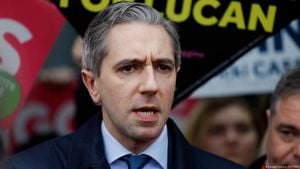The Scottish budget announcement for 2024 is poised to put the spotlight on the financial strategies of the Scottish Government under newly appointed First Minister John Swinney. Despite the bolstered budget due to funding from the UK Government, the anticipated proposals have sparked significant dialogues and reactions from various political factions.
Finance Secretary Shona Robison took center stage as she promised during her recent announcement to lay the "foundations for long-term success" with the budget, asserting it would prioritize the needs of the Scottish people. With additional funds of £3.4 billion earmarked for the financial year 2025-26, thanks to Chancellor Rachel Reeves’s latest budget, Robison declared this would allow the government to tackle pressing issues such as public health, child poverty, and renewable energy initiatives.
“This Budget will deliver for them by building on the positive changes we've already delivered for Scotland,” she remarked, emphasizing her commitment to creating jobs and putting more money back in people's pockets. She reiterated the government’s resolve to approach budgeting differently than the UK Government, which she criticized for treating Scotland like "an afterthought".
A significant increase to the winter fuel payment was also mentioned. Under the new plan, pensioners will receive either £100 or £300 to assist with heating costs—an issue made even more pressing due to consistently rising bills.
Political Reactions Surface
Echoing the weight of responsibility on Robison’s shoulders are external voices cautioning the Scottish Government against missteps. Scottish Labour leader Anas Sarwar issued what might be viewed as a rallying cry for transformation: “This cannot be a budget focused merely on inputs, it needs to hinge on outcomes.”
Labour's finance spokesman Michael Marra went one step farther by stating his party would oppose the budget if it did not significantly reform public services. He affirmed, “Scottish Labour will not back a bad Budget and will advocate for genuine change, not business as usual.”
Meanwhile, the Conservative Party vocalized their discontent over recent tax hikes. Conservative finance spokesman Craig Hoy Scott suggested the budget needs to reflect more of the people's needs by implementing tax cuts. He stated, “For 17 years, the nationalists have failed Scotland by making people pay more and get less.” Hoy articulated his aspirations for the budget to signal the start of what he referred to as “a new direction on tax and spending,” indicating the need for action to revitalize the economy.
An Opposition of Voices
The Scottish Lib Dems and Scottish Greens also weighed in, each outlining their own demands before they would agree to support any budgetary proposals. Lib Dem leader Alex Cole-Hamilton clearly expressed opposition to any funding allocated for independence, asserting such spending would not find favor among his party members. On the other hand, the Scottish Greens insisted the budget needs to be focused more on progressive initiatives such as environmental sustainability.
Ross Greer of the Scottish Greens questioned whether Swinney's government would bend to external pressures or if they would stay committed to progressive policies. He said, “Will the Government support sustainable initiatives, or will it cave to demands from other parties at the expense of our core values?”
What Lies Ahead
While tension mounts over the future of the budget, indications suggest the Scottish government is prepared to face these challenges head-on. Robison's recent visits to energy firms, such as Logan Energy, signal her commitment to prioritizing renewable energy, which has been framed as not just necessary but a gateway to job creation and economic growth. Her comments hint at investments aimed at transitioning Scotland toward becoming a leader in green energy.
She stated her ambition for Scotland’s energy transition to serve as both national and global solutions to climate-related challenges. Alongside combating climate change, building on public services like the NHS remains at the forefront of the government's objectives.
Looking forward, the budget’s success hinges on collaboration within Holyrood, as SNP ministers seek necessary support from opposition parties. With various opinions swirling around the upcoming budget, the hope is for a balanced approach focusing on economic growth, social welfare enhancements, and environmental sustainability, offered by the budget.
A Final Word
Despite the backdrop of growing disagreements and economic uncertainty, the Scottish budget is viewed as more than just financial planning; it is seen as a litmus test for the current administration’s ability to govern effectively under challenging conditions. With prevailing skepticism from various political spectrums, the forthcoming proposals compel the SNP to navigate through these dialogues carefully, balancing the needs of the populace with the constraints of funding and political realities. How well they achieve this balance will be pivotal not only for the administration's success but also for Scotland as it steps forward under these renewed government efforts.



